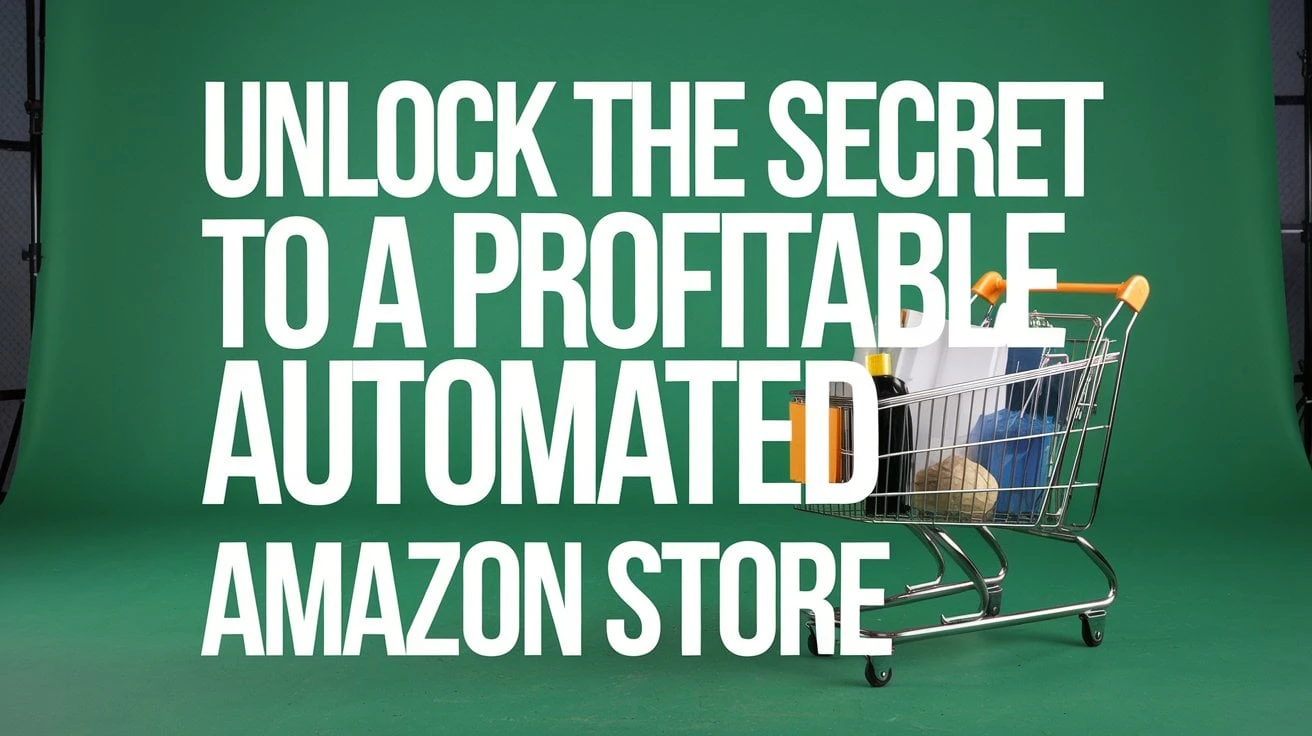What you’ll learn
Whether you are already selling as Amazon FBA or FBM seller, or it’s time to change your business structure, what is the ideal Amazon seller business type?

An Amazon seller business model is straightforward and you have the following core business types to choose from.
- Sole proprietorship
- Partnership
- Limited liability company (LLC)
- Corporation
- C Corporation
- S Corporation
So what are the differences and similarities? What do you think will give you the most advantage? Which one will suit your current situation?
Read on to find out.
Understanding Amazon Seller Account Types:
In addition to choosing your business structure, it’s important to understand Amazon seller account types. Amazon offers two primary account types: Individual and Professional. An Individual account is suited for sellers who plan to sell fewer than 40 items per month, with a per-item selling fee. A Professional account, on the other hand, is ideal for more active sellers, offering bulk listing options and advanced selling tools for a monthly subscription fee. Choosing the right account type can affect your costs and selling capabilities on Amazon.
Are you at risk of getting sued on Amazon?

Legal matters can’t be avoided in many businesses.
Getting sued as an Amazon seller is a very real threat and it will happen sooner than you think. There are millions of products, and hundreds of thousands of sellers from all over the world, and not everyone is going to play by the rules.
Then you add product risk to the equation where small pieces could choke a child, or expired food can cause sickness. Or if your products are flammable, it has high liability.
These are the tip of the iceberg questions that need to be considered.
Another huge factor is when you are small, you likely operated as a sole proprietor and now, you need to get away from having your personal assets on the line in case something happens and you become liable.
This is where your business type comes into play. More advanced discussions could be had on things like the best structure for
- tax planning
- profit taking/distributions
- bringing in partners
- remote or local employees
- taking on investors
But let’s keep it simple for now and start at the top.
Your business structure can affect your liability
Your legal responsibility depends on your Amazon seller business type.
Your business structure can allow you to recover damages and maybe even protect your own personal assets.
There are structures that separate you as a person from the company.
Different Amazon Business Models
Beyond choosing the legal structure for your business, it’s also important to decide on your Amazon business model. Amazon sellers typically operate under one of several common business models:
Private Label: You create and sell products under your own brand. This model offers the most control but requires an upfront investment in inventory and marketing.
Retail Arbitrage: You buy discounted products from retail stores and resell them at a higher price on Amazon. This model requires low investment but may face inventory limitations.
Wholesale: You buy products in bulk from manufacturers or distributors and sell them at a markup. It allows for scalability but requires larger initial investments.
Dropshipping: You sell products directly from a supplier to the customer without holding inventory. It offers lower risks but often comes with lower margins and less control over product quality and fulfillment.
Each model has its pros and cons depending on your business goals, risk tolerance, and resources. Matching the right business model with your chosen legal structure can set you up for success on Amazon.
Decide your business structure

There are pros and cons to any business structure.
What’s protected in sole-proprietorship that’s not protected in an LLC? Let’s discuss all of them one by one.
And then enumerate the pros and cons of each business type.
Sole proprietorship, or sole trader
This business structure means it’s just you, the owner that’s selling on Amazon. This is a business run by a single person.
This business type is easy to set up but you’re liable for everything.
Pros:
- No need for any formal action
- You only need to name your business and be legally compliant (state license & other registration) and tax compliant
- The owner has full control of the business
- You can test your business idea quickly without going through legal set ups
- Easy to convert business type to a corporation or LLC
- Super easy to file taxes as the sales is all applied under your personal income
Cons:
- The owner is responsible for everything – any losses, liabilities & debt
- The owner can be sued personally
- If the business grows, your tax liability increases quicker
- Not as many tax benefits
Is partnership better for you?
A business partnership is a formal business agreement between two or more people.
That said, this does not require a formal agreement with the government to form a partnership.
The obvious difference with sole ownership is that you will insert another person into the business.
Pros:
- You can share tasks and responsibilities with other people
- You can also share the costs of doing business
- Formally share equity in the business
Cons:
- You can decide unilaterally but you’ll have to answer to your partners
- Differences of ideas with your partners and messy breakups
- Profit-sharing
- You’ll be taxed individually
Do I need an LLC For Amazon FBA?
You don’t need to be an LLC to sell on Amazon. But it certainly helps if you want to grow your business.
A limited liability company will ensure that your liability as a person is separate from your company liability.
You are personally protected from business litigation for the most part.
You are protected from litigation unless it’s fraud or you did not give a clear separation between your assets and business assets.
Pros:
- Filing an LCC is easy
- The owner is taxed for both business income and his/her own income (no double taxation)
- Personal assets are (generally) separate from business assets
Cons:
- You can still be liable in court if have no clear separation between personal and business assets
- You’ll likely not have investors outside of the business
- Changing members in your business is a long, drawn-out process
Corporations – S Corporations & C Corporations
What’s a corporation?
It’s when the business owner files a document called articles of incorporation in a state. The company can then move to change its status as an S corporation or C corporation.
Why bother changing status?
For tax considerations, of course.
For example, an S Corporation is a tax status that will shift the payment of taxes from the company to the owners.
First, let’s start with C corporation.
Pros & cons of C Corporations
According to CFI, a C corporation is:
…the default designation provided to a freshly incorporated company.
So when you start a corporation your status is by default a C corp. In this setup, the company will be liable to pay taxes, and the owners are also required to pay their own taxes.
This is what’s called “double taxation”.
The company pays taxes on the profit, and then the owners also pay taxes on their income too.
As stated, this type can be converted to S corp with a majority decision from the shareholders.
Pros:
- You have limited liability as an owner
- Lower tax rate by splitting up your profit and losses as a business and as the owner
- For bigger businesses
- More flexible for shareholders
- More investors allowed
Cons:
- Double taxation
- More expensive to run for things like bookkeeping, keeping records, annual filings
- Not suited for small sellers or low sales
Pros & cons of S Corporations
You can become an S corporation by a process called an “election” to be taxed as an S corporation if you are an LLC or a proper S corp. Check your state to make sure you can remain an LLC but be taxed as an S corp. If your state allows it, it’s one of the best structures for Amazon sellers.
There are requirements that you need to consider to be an S corp.
An S Corp cannot have more than 100 shareholders and all of them should be natural individuals with an American passport or holding a US passport. Most sellers won’t ever need to worry about it as it’s extremely unlikely you will bring in 100 shareholders to any Amazon seller business type.
Pros:
- You have limited liability as an owner
- Owners will not be double-taxed
- Additional tax deductions for the owners
- Very flexible
- Simple to run and cost effective
Cons:
- IRS watches over the owners’ tax payments closely
- Owners are also required to pay FICA tax (but also where you can save money)
What are the best business entities for Amazon FBA?

For any business that doesn’t have 100 shareholders, my recommendation is to form an LLC and get taxed as an S corp.
This simple structure will let you grow without putting your personal assets at risk. You’ll find the documentation easy to manage, and be able to grow.
Even if you decide to sell the business, it’s straightforward.
A limited liability company is a good start for a small company.
- Easy filing process
- You can avoid double taxation
- Personal protection from liability
LLC will also allow you to grow and eventually upgrade to a corporation if you need to.
If you plan to grow like gangbusters, want to bring in outside funding like venture money, angel investors, debt or something else, then C corp is the only way to go.
Comments
One response to “4 Amazon seller business types”
-
I am a self-publisher. I started setting up the seller account, but haven’t completed it (as in, it’s not verified or anything, no documents uploaded, etc).
For the entity type, I selected that I am an “individual”, but now I am questioning whether I should instead select that I am a privately owned business, and perhaps put sole-proprietor? I am not sure. I have an EIN, but since I am a self-publisher and the taxes all fall on me individually, is there a major difference here in what I choose?
I am a little stressed out because it said you can’t change it and this is all so new to me, and I thought I made the right choice but now I am second guessing.
If I made the wrong selection, is the seller central easy to work with in correcting these things?
Related Posts

10 Profitable Product Categories for Amazon Affiliates 2025
What you’ll learn Amazon is a favorite for experienced and…

Unlock the Secret to a Profitable Automated Amazon Store: How to Build a Hands-Free Income Stream
Ever dreamed of running a profitable Amazon business while sipping…

Master Amazon New Restricted Keywords: A Seller’s Guide to Success
Changes to Amazon’s restricted keywords list have taken a lot…







Leave a Reply